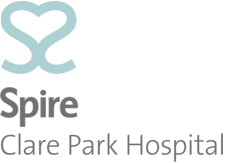Acne
Acne is the skin condition most people are familiar with. It afflicts most people to a varying degree, especially during their teen years. However, the disease is by no means restricted to teenagers; adults well into their twenties or thirties may suffer from acne.
Acne primarily occurs on the face, but it can also occur around the neck, shoulders, back and chest.
Many think that because acne is so common, treatment is unnecessary. However, waiting to "outgrow" acne can be a serious mistake. Medical treatment can improve your appearance and self esteem, and also prevent the development of lifelong scars, which may occur with serious cases.
Before and after
Actual patient of Dr D'ippolito's

Causes of Acne
Acne is caused by a combination of several factors:
- Hormone levels, particularly during adolescence, cause enlargement and overactivity of the oil glands in the skin.
- The canals that bring oil to the surface become blocked with keratin (a protein that is part of the skin, and the primary component of hair and nails).
- When these oil glands are overactive and the canals become blocked, bacteria that normally live on the skin and in the oil become trapped. They subsequently multiply, and cause inflammation and irritation which leads to the redness we associate with acne.

Cleansing and cosmetics
Even though washing frequently is the most commonly recommended advice, acne is not actually a disease caused by dirt. For example, the blackness of a blackhead is not dirt, but instead due to the accumulation of the normal skin pigment in the oil gland ducts.
The best technique is to wash your face with a mild-antibacterial soap twice a day. If one's skin is very oily, it may be washed more often. Although tempting, over-enthusiastic washing or scrubbing tends to irritate the skin and will actually make acne worse. Therefore, do not use any abrasive cleaners or cleansing pads.
Shampooing is also important in acne therapy. The oilier your hair is, the more often you should shampoo it. Also, it is best to keep hair off the face as much as possible. This is because oily hair can worsen the condition.
For covering blemishes, many preparations have been formulated to match skin color. These cosmetics should be water based (i.e. the first ingredient on the label should be water). Most cosmetics and skin products that are safe to use on acne-prone skin will say "non-comedogenic", "oil free" or "won't clog pores."
Look for these labels on your facial products. Greasy applications such as Vaseline, cocoa butter, cold cream, and vitamin E oil should be avoided. If the face is dry, your dermatologist can recommend a moisturizer for your type skin.
Treatment of Acne
Acne is very treatable. In recent years many effective forms of therapy have been developed. Dermatologists want to prevent scars that acne can leave. Years of untreated acne can leave a lifelong imprint on a person's face and can have an effect on his or her self-image. While acne may not be entirely curable, it is usually controllable.
Since acne has many forms, your dermatologist designs an individual approach to care for successful control. Thus, the course of therapy will vary according to such factors as type of acne, it's severity and extent, and the patient's day-to-day activities.
Mild acne is treated with one or a combination of topical medications. The purpose of these is not only to treat existing acne lesions, but to prevent new blemishes from forming. Therefore, these are applied over most of your face, not just directly on the present pimples. In addition, in some people these creams may cause the face to become a little dry, pink or feel taut. This is normal. If your face becomes too irritated or feels 'raw' don't stop the creams, just decrease the frequency of application (i.e. apply every second or third day).
Moderate and severe acne is usually treated by topical medicines with the addition of oral antibiotics. These serve to help prevent the bacteria in the skin from multiplying. Since different combinations work better for some patients than others, you are usually evaluated every four to six weeks until the acne is well controlled.
In addition to this conventional therapy, your dermatologist may recommend one or more of these treatments to speed healing and clearing of your acne:
Intralesional Corticosteroid Therapy: If one or several painful acne cysts develop, fast relief is available with this relatively painless procedure. Each cyst is given a single injection of a dilute cortisone solution, a steroid, using a very tiny needle.
Accutane Therapy: In 1982 a new oral medication, isotretinoin (Accutane), became available for the treatment of patients with severe acne not responsive to conventional treatments. The duration of treatment is usually five to six months, and one such course is often curative of severe acne forever. Use of this medication does require a thorough understanding of its side effects and precautions (e.g. the prevention of pregnancy).



